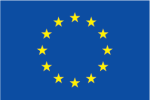A recent email from the European Commission reminded us – as if such a reminder was needed – that Covid-19 makes its way into all research activities. The specific message of the email was a request that we share information about the EU effort for research and innovation helping society to deal with the public health crisis. Of course we will, but we’re also taking this opportunity to reflect more broadly on Covid-19 and integrity – INTEGRITY as a project as well as integrity as a quality of research and academic activity.
Anna Olsson
11 May 2020
No Comments
Covid-19 and INTEGRITY.
The email was a request that we share information about the EU effort for research and innovation helping society to deal with the public health crisis.
Just like most academics across the world, the INTEGRITY team at the different consortium partners is working from home, since mid- March. The fact that we are not at our normal workplaces doesn’t affect the project too much – but the fact that students are not at school does. One of the key tasks of the project is a survey to students at high schools and universities about academic integrity, and when containment measures were put in place, data collection was well underway. Luckily, we are still making good progress with the higher education students who are filling in questionnaires online, but the high school data collection that was based on classroom visits or students visiting science museums will have to wait until such activities resume – hopefully this autumn.
One of the key tasks of the project is a survey to students at high schools and universities about academic integrity.
A much bigger challenge is of course the impact that Covid-19 has on the integrity of research that is being done right now. The way the public health crisis is putting pressure on research to produce results fast obviously means a greater risk that good research practice is sidestepped. The European Network of Research Integrity Offices (ENRIO) has issued a statement on research integrity during a pandemic, highlighting the need to make sure that scientific rigour is maintained also when politics call for simple answers fast. In a recent Briefing in the journal Nature, Timothy Caulfield (Canada research chair in health law and policy at the University of Alberta) goes one step further and challenges the scientific community to take up the battle against pseudoscience and fake health news in the context of Covid-19:
“I have studied the spread and impact of health misinformation for decades, and have never seen the topic being taken as seriously as it is right now. Perhaps that is because of the scale of the crisis and the ubiquity of the nonsensical misinformation, including advice from some very prominent politicians. If this pro-science response is to endure, all scientists — not just a few of us — must stand up for quality information.
Here are two places to start.
First, we must stop tolerating and legitimizing health pseudoscience, especially at universities and health-care institutions. Many bogus COVID-19 therapies have been embraced by integrative health centres at leading universities and hospitals. (…)
Second, more researchers should become active participants in the public fight against misinformation.”
ENRIO has issued a statement on research integrity during a pandemic, highlighting the need to make sure that scientific rigour is maintained.
The INTEGRITY team doesn’t involve scientists with the kind of profile that can be mobilized to work on vaccine development or test strategies – but we certainly can contribute to the fight against misinformation. In fact, when an appeal went out to all researchers to help with the institutional effort at IBMC-i3S, the Portuguese INTEGRITY team thought long and hard about how we could contribute. We realised that there was in fact something we were good at and that was much needed: relevant, accessible and science based information. Of course, project activities need to be relevant for the project, so we used this as an opportunity to test a concept of communication that we want to implement in INTEGRITY. The outcome was this infographics video about herd immunity and Covid-19.
The video is narrated in Portuguese with English subtitles –
make sure you have subtitles activated in the settings for YouTube.
Already in the first 24h online, the video was beating the social media records of i3S and it’s now had over 120 000 views and been shared more than 1500 times.
The outcome was this infographics video about herd immunity and Covid-19.
What about the message from the EU commission? It is urging us to share the news about EU supported research and innovation projects and initiatives to tackle the spread of coronavirus and preparedness for other outbreaks. Of course we will. And if you need more to convince you that a joint effort to learn more about the disease and develop treatments and vaccines is crucial, then perhaps this very poignant message will do it. Virologist Peter Piot, director of the London School of Hygiene & Tropical Medicine and Covid-19 R&D special adviser to European Commission President Ursula von der Leyen, knows what it takes to survive Covid-19 – not only as a society but also as a patient.
Recent Posts
- New INTEGRITY study uncovers widespread unethical practice for assigning authorships
- Conflict of interest in research: what is it and why it matters?
- Integrity Games: Empowering students with a gamified learning tool.
- Bad news for reproducibility in Cancer biology.
- Designing a MOOC aimed to empower.
This project received funding from the European Union’s Horizon 2020 research and innovation programme under Grant Agreement No 824586. The European Commission’s support for the production of this material does not constitute an endorsement of the contents, which reflect the views only of the authors, and the Commission cannot be held responsible for any use which may be made of the information contained therein.


Leave a Reply